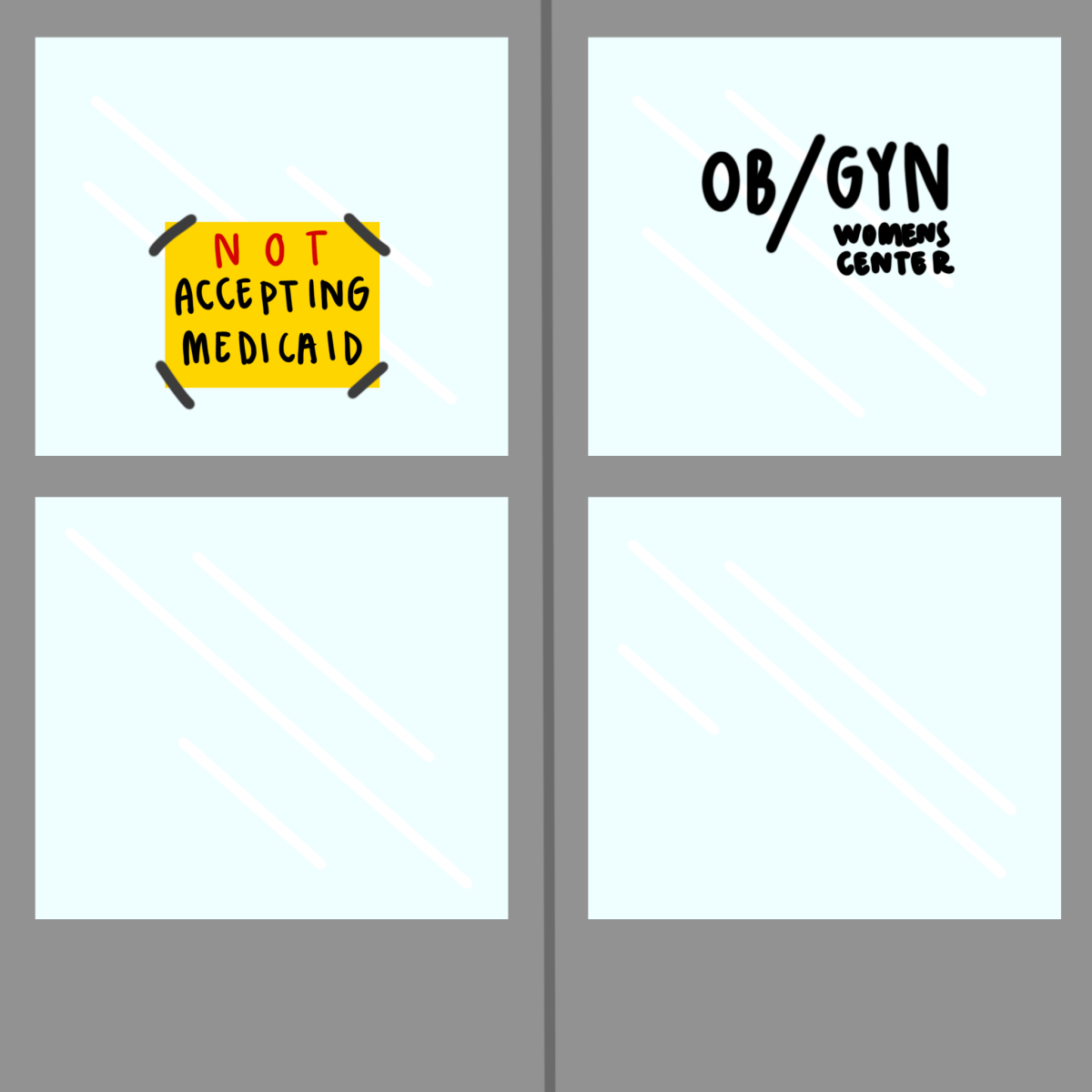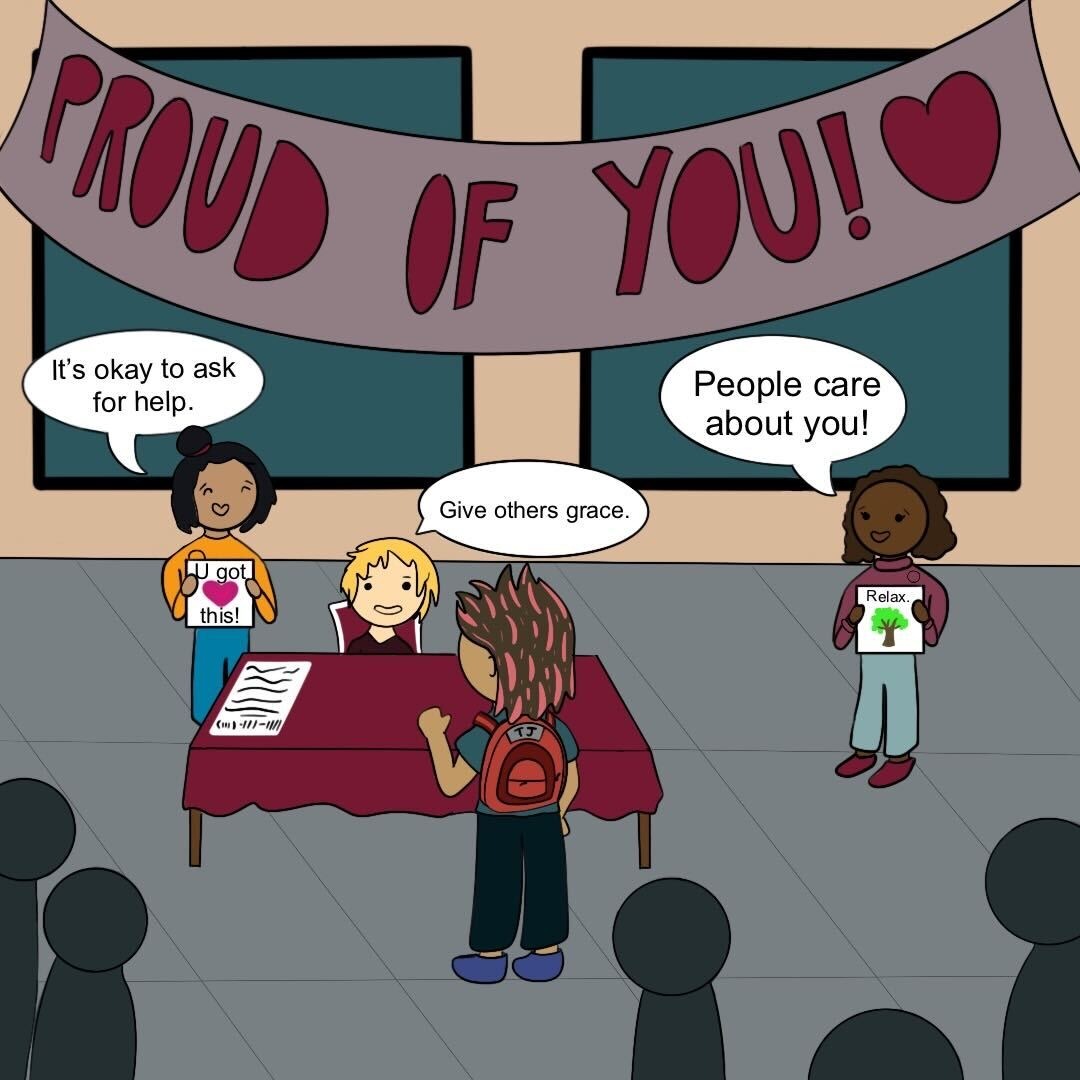San Marcos is currently plagued with a severe lack of obstetricians and gynecologists (OB/GYN) who accept Medicaid, and the issue needs to be addressed.
For a woman, going to an OB/GYN is an important part of learning more about her body and gleaning information about various health issues that could arise throughout her life. Having limited women’s health facilities that take Medicaid makes it harder for women with that insurance to find necessary care.
Angie Owens moved to San Marcos last May and has yet to find an OB/GYN facility that accepts her current Medicaid insurance. Out of sheer desperation, she went to the Nextdoor app to see if anyone had any insight on where to go. Surprisingly, there were others experiencing the same issue. After the overwhelming amount of responses, she soon realized she was not the only one in the isolating bubble of not being able to seek treatment.
After calling almost every OB/GYN in her area, she was denied care due to having Medicaid. Frustration in the healthcare system was all that lingered in her mind, but the most unnerving, pressing issue was the lack of options.
When searching for licensed OB/GYNs in San Marcos, Google noted only a few facilities that specialize in women’s health. The number is even lower when taking into consideration how many of those places accept Medicaid.
Live Oak Health Partners Women’s Care, Gynecology Women’s Health and Healthy Texas Women are among the facilities/programs that accept all forms of Medicaid. On the other hand, San Marcos Women’s Health, Caring Center for Women and San Marcos OB/GYN have expressed they either do not take Medicaid at this time or it is a policy they no longer accept.
In fact, reports show providers are less likely to accept Medicaid patients than people on other health insurance.
“I have not been treated [in San Marcos] with my current insurance because hardly any medical places accept it,” Owens said. “It’s healthy Medicaid, and it’s definitely hard to get any help with serious issues other than things like STD testing, birth control and mammograms, but other things are not covered by that insurance, or places just don’t take it at all.”
This poses a problem for female students and others who may have Medicaid as her, his or their primary insurance. There are students still on a parent’s health plan, and Medicaid is the most affordable option.
OB/GYN checkups are the difference between life and death in some cases. Health concerns go unnoticed and untreated without proper gynecological care. It is important to get screened routinely each year, especially as women get older and more health complications emerge unexpectedly.
It is dangerous for San Marcos to not make that care available to certain insurance policyholders; it is life-threatening.
According to Lifespan, “Many of the conditions that affect women’s health, including the human papillomavirus (HPV), cervical cancer, and breast cancer, can exist without any signs or symptoms. Regular screening with OB/GYN exams and tests can detect these conditions at earlier stages when they can be treated most effectively.” Having access to an OB/GYN is a necessity and should not be denied because one does not have particular insurance.
Owens is one of the many women who struggle to find suitable care. Medicaid covers 1 in 5 Americans, ultimately reaching many low-income individuals who need –– and rightfully deserve –– healthcare.
“It’s not our fault that we struggle sometimes or fall under low-income categories,” Owens said. “I just feel like we get treated differently because we have that type of insurance.”
One’s socioeconomic group might determine what type of insurance she, he or they has. The stigma around people who rely on Medicaid is they are dirt poor and cannot afford to pay for insurance, which is unfair. This generalization equates to unsatisfactory care within lower-income communities and fewer options for them to choose from.
The frustrations Owens expressed are linked to the importance of women’s health and finding the right doctor to ensure a healthy life. According to Premier Health, “Gynecologists and obstetricians play a vital role in a woman’s health, which is why it’s important that she finds one she can trust and partner with to care for her specific needs.”
A lack of such causes further problems for regular residents, like Angie, and other college students.
Unfortunately for college students, there are only limited options for affordable and convenient health insurance. As a result of the Affordable Care Act passing, there has been an increase in the number of students who are dependent on Medicaid, which results in an increase in students who cannot receive adequate healthcare due to their insurance.
According to The Century Foundation, “the share of students enrolled in Medicaid has increased by five percentage points since the passage of the ACA, from 8 percent of students to 13 percent.” More students are on Medicaid and dependent on the medical facilities in their areas to accept their insurance. But San Marcos has a severe lack of options.
Women’s health is important no matter what insurance is present. San Marcos facilities and programs should take this into consideration and provide female residents with more OB/GYN options that accept people’s insurance to provide them with adequate healthcare they deserve. This will provide women like Angie Owens an opportunity to get the care they need without the lingering stress.
– Taylor Bradley is an English senior
The University Star welcomes Letters to the Editor from its readers. All submissions are reviewed and considered by the Editor-in-Chief and Opinion Editor for publication. Not all letters are guaranteed for publication.
Opinion: San Marcos has limited care options for women with Medicaid
Taylor Bradley, Opinion Columnist
January 7, 2021
0
Donate to The University Star
Your donation will support the student journalists of Texas State University. Your contribution will allow us to purchase equipment and cover our annual website hosting costs.
More to Discover











